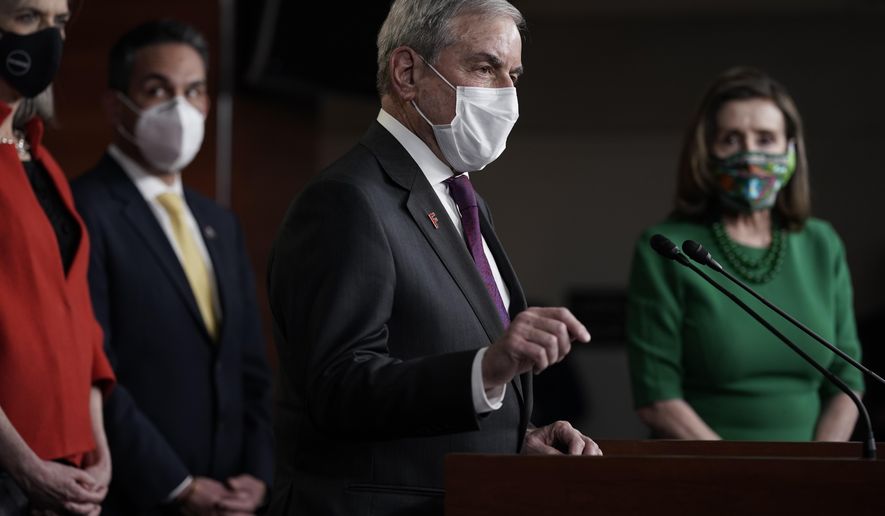The Democratic-led House voted Friday to avert deep spending cuts, including an estimated $36 billion in Medicare cuts next year, that would be triggered by President Biden’s $1.9 trillion coronavirus relief package absent action from Congress.
The House voted 246-175 to get around a 2010 law that would trigger the cuts.
More than two dozen Republicans joined with Democrats to pass the bill and neither party wants to see the cuts happen.
But it’s unclear whether the bill as passed will win enough support in the 50-50 Senate to avert a possible filibuster.
The bill lawmakers passed on Friday exempts the relief package from being counted against a budget scorecard that triggers “sequestration” cuts to offset projected increases in the federal deficit from new legislation.
The bill also extends a temporary freeze on separate Medicare sequester cuts until the end of the year. That exemption, which was extended in earlier COVID relief bills, is due to expire at the end of the month.
Democrats said they couldn’t include a waiver for the broader cuts in the $1.9 trillion package itself because of the fast-track budget rules they used to muscle the bill through Congress without support from Republicans.
House Budget Committee Chairman John Yarmuth pointed out that Democrats backed legislation to avert the cuts the 2017 GOP tax law would have triggered, even though no congressional Democrats supported the tax law itself.
“Even in the wake of contentious legislation, Congress has come together to prevent sequestration and to protect Medicare, farm support programs, social services, resources for students and individuals with disabilities and other programs Americans rely on,” said Mr. Yarmuth, Kentucky Democrat. “This time should be no different.”
Rep. Jason Smith of Missouri, the top Republican on the House Budget Committee, said the GOP shouldn’t be expected to bail Democrats out absent further cuts to excessive spending in the $1.9 trillion package.
“We are here today because Democrats want to fix one of the many problems caused by President Biden and the House Democrats in the $1.9 trillion bailout,” Mr. Smith said.
Under a 2010 law, the White House budget office has to identify cuts to offset projected increases in the deficit from new legislation.
The Congressional Budget Office (CBO) projected that due to the $1.9 trillion package, the Office of Management and Budget (OMB) would have to issue a directive to cut mandatory spending by about $381 billion in fiscal 2022 if there aren’t other offsets or waivers.
That translates to about $36 billion in Medicare cuts. The 2010 law limits Medicare cuts and exempts a number of other programs, including social security.
Lawmakers can get around the Statutory Pay-As-You-Go Act (PAYGO) by designating a bill as emergency spending, which was the case for multiple rounds of coronavirus relief last year.
They can also simply waive the law. But unlike the relief package itself, Senate Democrats will need support from at least 10 Republicans to avert a possible filibuster in the 50-50 Senate.
“Republicans don’t want to see this cut to Medicare happen, either,” Sen. Mike Crapo of Idaho, the top Republican on the Senate Finance Committee, told The Washington Times. “This is a huge hit to Medicare that is going to be coming as a result of the COVID-19 rescue package.”
Mr. Crapo suggested he wanted to see some reforms attached to the legislation, rather than sign off on a blanket waiver.
“It’s true — Congress can just waive it again. And there will be intense pressure to do that,” he said. “But I believe that we should work very hard to find out if there are either policy adjustments or offsets that can help to avoid this — not only avoid the excessive cuts to Medicare, but do so in a way that is more fiscally responsible.”
• David Sherfinski can be reached at dsherfinski@washingtontimes.com.




Please read our comment policy before commenting.